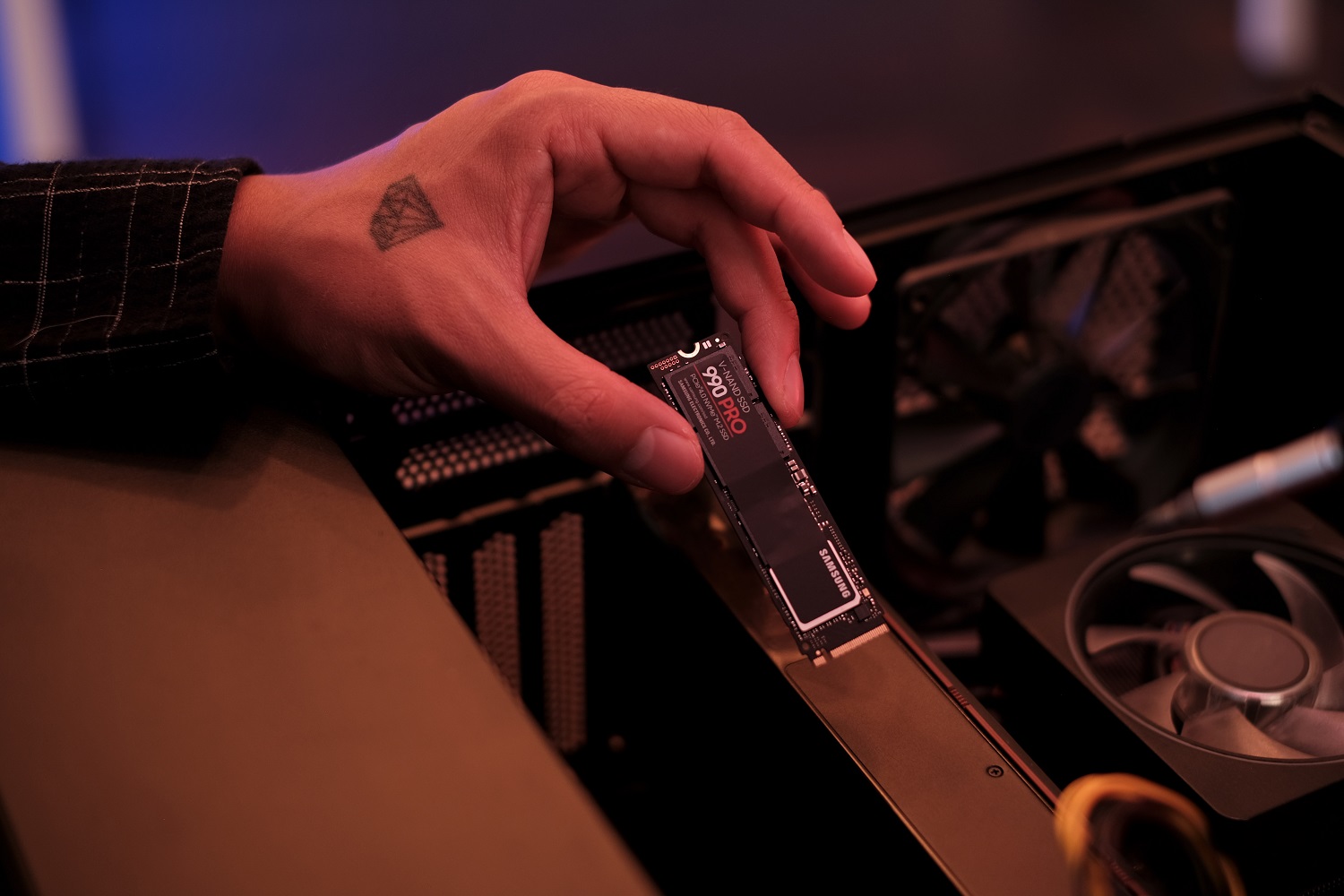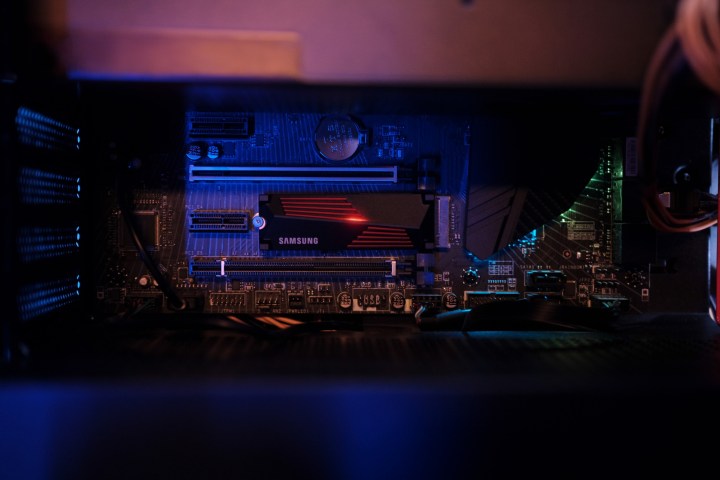The Samsung 990 Pro SSD is built for PS5 and DirectStorage
The launch of PCIe 5.0 devices doesn't mean PCIe 4.0 SSDs are old hat now, as Samsung is launching its new 990 Pro SSD with PCIe 4.0 and better performance.

Much of the discourse on SSDs has recently been focused on the upcoming PCIe 5.0 spec, which has twice the bandwidth of PCIe 4.0 and will theoretically allow SSDs to hit even greater speeds, just as PCIe 4.0 did in 2019. But that doesn’t mean PCIe 4.0 SSDs are old hat now, as Samsung is launching its new 990 Pro SSD with older PCIe 4.0 technology. And it’s ready for Microsoft’s DirectStorage and PS5.
Although Samsung has PCIe 5.0 SSDs for enterprise, which feature much faster sequential speeds and input/output operations per second (IOPS) than any PCIe 4.0 SSD, the company is sticking with PCIe 4.0 for consumer-oriented devices for the time being. There’s more to an SSD than just the interconnect it has, however, such as NAND storage chips themselves, the software and firmware, and the SSD controller.
 Samsung
SamsungThe sequential performance gains are not quite as dramatic as we’ve seen with PCIe 5.0 SSDs, which can reach over 13,000MB/s reads. However, the 990 Pro does have slightly higher reads and significantly higher writes than the last-gen 980 Pro. The claimed performance uplift in random reads and writes is much more substantial as the 990 Pro apparently has 55% more IOPS. Combined with optimizations for Microsoft’s DirectStorage API, the 990 Pro should have much faster loading times in games among other applications where increased random performance is beneficial.
| Samsung 990 Pro (1TB) | Samsung 980 Pro (1TB) | |
| Sequential reads | 7,450MB/s | 7,000MB/s |
| Sequential writes | 6,900MB/s | 5,100MB/s |
| Random reads | 1,550,000 IOPS | 1,000,000 IOPS |
| Random writes | 1,550,000 IOPS | 1,000,000 IOPS |
| Interface | PCIe 4.0 | PCIe 4.0 |
Samsung also says the 990 Pro is up to 50% more efficient than the 980 Pro, which is important for reducing heat and improving battery life on laptops and other devices that can use NVMe SSDs. The previous-generation 980 Pro can consume up t0 9 watts, which is almost as much as a low-end mobile CPU, so a significant reduction in power consumption would lead to noticeably better battery life.
Samsung attributes the performance and efficiency improvements of the 990 Pro primarily to the 8nm controller that the new SSD uses — the company claims it’s the first SSD controller on 8nm. However, the 980 Pro also used an 8nm controller; we’re not sure if Samsung means the 990 Pro uses the same controller as the 980 Pro (which leaves the improvements unexplained) or if the company made a mistake in its product announcement. We’ve reached out to Samsung for clarification on this point.
Preorders for the 1TB and 2TB models begin on November 1, and at $169 and $289 respectively, they are priced similarly to the 980 Pro when it came out (though the 980 Pro has since fallen in price by $30 to $60). A 4TB model will also be available in 2023, likely with performance similar to the 1TB and 2TB versions.
Samsung is also offering 1TB and 2TB versions with a heat sink, which are $20 more expensive. This heat sink model seems particularly built for the PS5. The heat sink still works in the console, allowing you to add an additional 2TB of speedy storage to your PS5.

 JimMin
JimMin 































